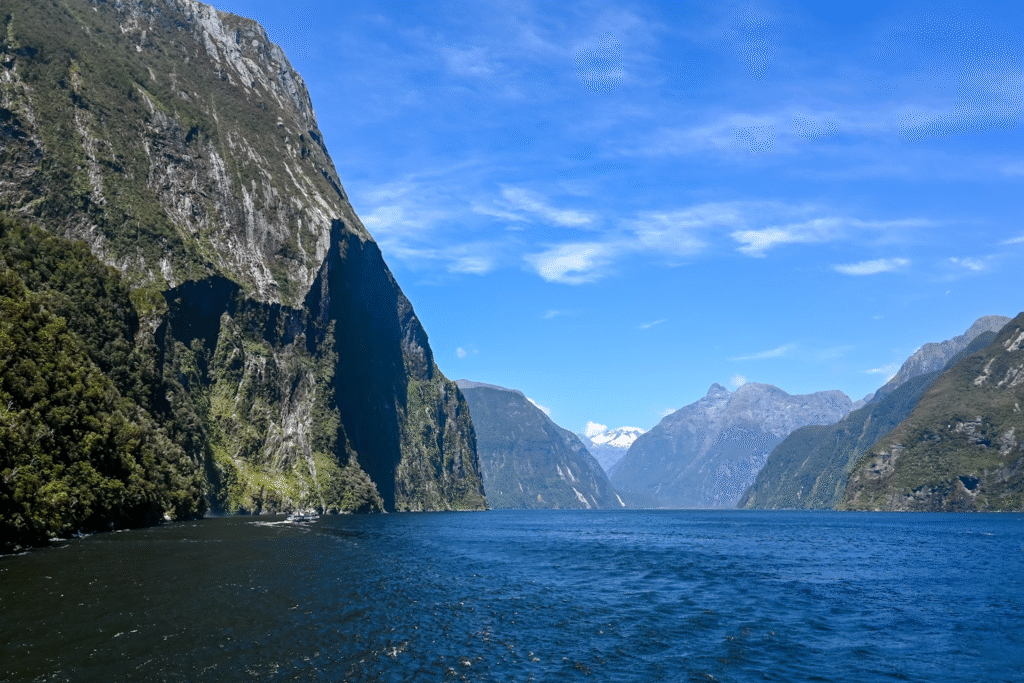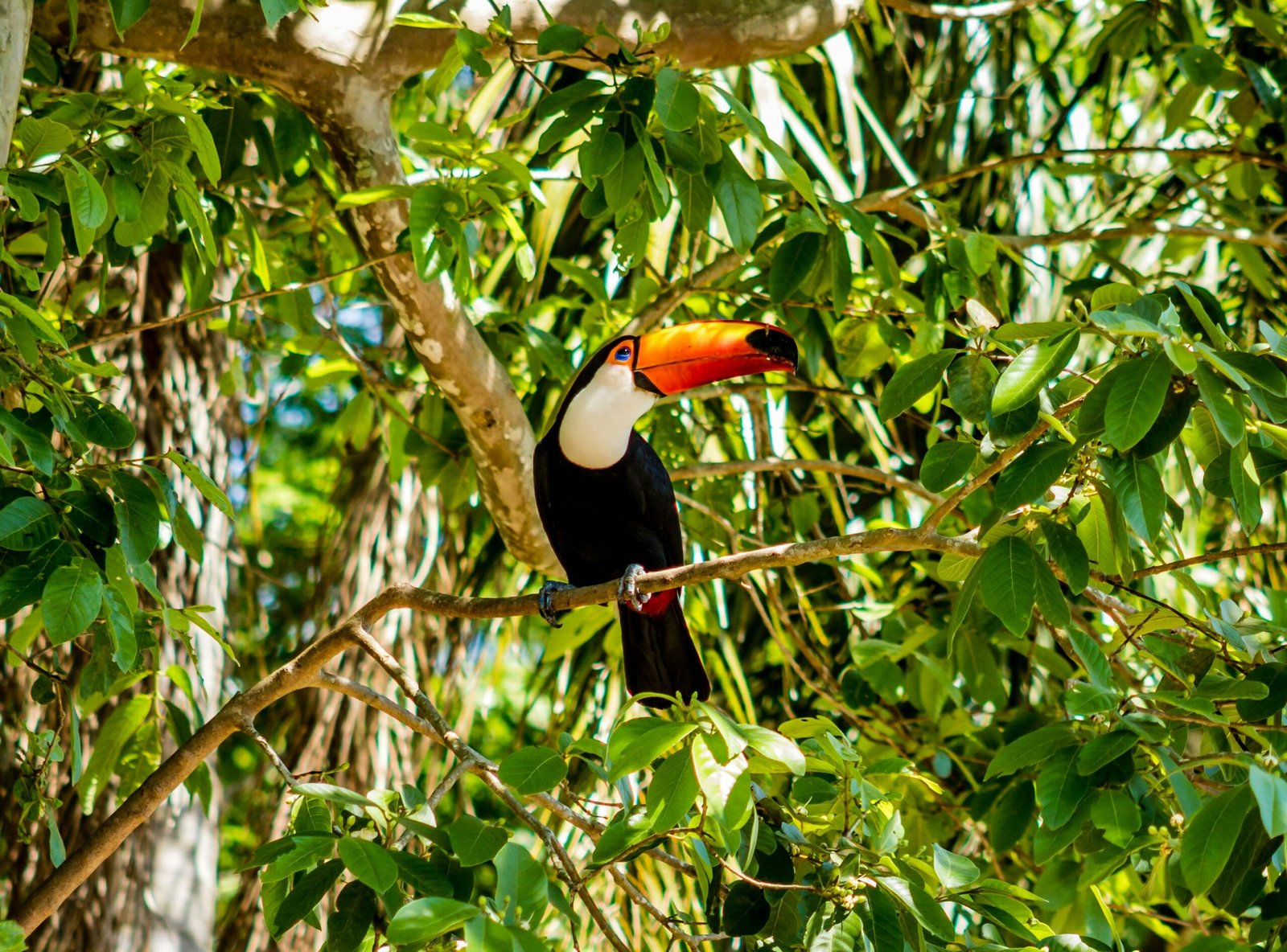Table of Contents
Introduction to Eco-Travel
Eco-travel, also referred to as sustainable travel or responsible tourism, emphasizes minimizing the environmental impact of travel while promoting conservation and supporting local communities. This approach to tourism is increasingly relevant in the modern travel industry, where travelers are becoming conscious of their ecological footprint. Major principles of eco-travel include preserving natural habitats, reducing pollution, and promoting ethical interactions with wildlife and local cultures. The rising awareness surrounding climate change and the depletion of natural resources has spurred many travelers to seek out eco-friendly alternatives, making responsible tourism not just a trend, but a necessity.
The significance of eco-travel cannot be overstated. By choosing eco-friendly travel options, individuals contribute to the protection of fragile ecosystems, ensuring that future generations can experience their beauty. Additionally, eco-travel directly benefits local communities by fostering economic growth in sustainable industries, such as ecotourism and local crafts. It empowers locals, offering them opportunities to engage with travelers in a respectful and mutually beneficial manner, which in turn helps preserve their cultural identity. This interaction also provides travelers with authentic experiences that enhance their understanding of the regions they visit.
New Zealand stands out as a remarkable eco-friendly destination, renowned for its breathtaking landscapes and commitment to environmental conservation. The country boasts an array of national parks and reserves, showcasing unique flora and fauna. Furthermore, New Zealand’s focus on sustainable practices is evident in various sectors, including hospitality, transportation, and tourism activities. This dedication to ecological sustainability, combined with an extensive range of outdoor experiences, makes New Zealand a prime choice for eco-travel enthusiasts. Visitors to this magnificent country not only engage in responsible tourism practices but also immerse themselves in the rich natural heritage that defines the Kiwi experience.
New Zealand’s Natural Wonders
New Zealand is celebrated worldwide for its breathtaking landscapes that captivate both nature enthusiasts and eco-conscious travelers. The country boasts a range of stunning geographical features, including majestic mountains, pristine beaches, lush forests, and a diverse array of flora and fauna. These natural wonders collectively contribute to New Zealand’s reputation as an ideal eco-travel destination.
One of the most iconic areas is Fiordland National Park, known for its dramatic fjords, towering peaks, and cascading waterfalls. This UNESCO World Heritage site is home to renowned fjords such as Milford Sound and Doubtful Sound, both of which offer breathtaking views and a chance to experience the region’s unique ecosystems. The park’s remote location allows for the preservation of various species, including the rare yellow-eyed penguin and the critically endangered takahe, making it a haven for wildlife enthusiasts.

The Southern Alps form the backbone of the South Island, rising dramatically from the landscape. Here, visitors can engage in ecologically responsible activities such as hiking, skiing, and mountaineering, all while appreciating the stunning vistas. The Southern Alps are also significant for their glacial formations, remnants of the last Ice Age, contributing to the region’s rich biodiversity. Certain areas within this alpine region are designated as conservation parks, prioritizing ecological preservation and promoting sustainable tourism.

Additionally, the geothermal regions of Rotorua and Taupo present another dimension to New Zealand’s natural marvels. These areas are characterized by their unique geological formations, including geysers, hot springs, and mud pools. The captivating thermal landscapes offer visitors an opportunity to witness the Earth’s natural processes while learning about Maori culture and traditional uses of these geothermal resources.
In summary, New Zealand’s breathtaking landscapes and rich biodiversity make it a prime destination for eco-travelers. With its mountains, beaches, forests, and geothermal wonders, it offers an unparalleled natural experience that fosters a deep appreciation for the environment.
Commitment to Sustainability
New Zealand has gained recognition as a leader in sustainability, particularly concerning its eco-travel initiatives. The country’s commitment to environmental stewardship is reflected in its policies, which emphasize conservation and sustainable tourism practices. Government regulations encourage the reduction of carbon emissions and the use of renewable energy sources throughout various sectors, including tourism. This commitment is critical to preserving New Zealand’s unique landscapes and biodiversity.
Local communities across New Zealand have also taken significant strides towards sustainability, often embracing practices that promote environmental well-being. Many towns and cities actively engage in initiatives that reduce waste, increase recycling, and encourage eco-friendly consumption. This grassroots involvement fosters a conscious approach to travel, urging visitors to participate in these sustainable practices during their stay.
In the realm of tourism, New Zealand is setting a standard through the promotion of eco-lodges that prioritize environmentally friendly operations. These accommodations are designed to minimize the ecological impact while offering visitors a unique experience in nature. They often utilize sustainable building materials, implement water conservation techniques, and rely on locally sourced food provisions. Such practices not only enhance the guest experience but also support the local economy and sustain local ecosystems.
Additionally, initiatives such as carbon offset programs are becoming increasingly popular among tourism operators. These programs allow travelers to compensate for the carbon footprints generated during their journeys, promoting a holistic approach to sustainable travel. As New Zealand continues to develop its tourism sector with a strong focus on ecological preservation, visitors can enjoy breathtaking landscapes guilt-free, knowing that their travel choices contribute positively to both the environment and local communities.
Unique Wildlife Experiences
New Zealand is renowned for its rich biodiversity and offers a unique array of wildlife experiences that appeal to eco-travel enthusiasts. As a nation separated from the rest of the world for millions of years, New Zealand has developed a distinctive assortment of flora and fauna, including numerous species found nowhere else. Among these iconic native species, the kiwi bird serves as a symbol of New Zealand and is a must-see for any visitor. While observing these flightless birds in their natural habitat can be an awe-inspiring experience, it is imperative that tourists engage in this activity with a focus on conservation and respect for wildlife.
In addition to the kiwi, the tuatara, a reptile with a lineage dating back to the age of dinosaurs, fascinates many travelers. This species is under threat due to habitat loss and predation by introduced species. Efforts to protect the tuatara can be witnessed firsthand in conservation programs where visitors can learn about the importance of habitat preservation. Such programs often include guided tours led by passionate conservationists who provide insight into the unique ecological balance of New Zealand’s ecosystems.

Another exceptional wildlife experience is the opportunity to encounter New Zealand sea lions. These animals can be found basking on the shores of various beaches and are known for their playful behavior and social interactions. Eco-travelers can observe these remarkable creatures by participating in responsible eco-tours that prioritize the welfare of the animals and their environment. Furthermore, several wildlife sanctuaries around the country provide safe havens for endangered species and promote ongoing conservation efforts, allowing tourists to engage thoughtfully with wildlife while contributing to their protection.
Overall, New Zealand’s diverse wildlife presents enriching experiences for travelers, and it is crucial that these encounters prioritize responsible tourism. By participating in conservation initiatives and supporting local sanctuaries, visitors can contribute to the safeguarding of New Zealand’s unique wildlife and ensure that these extraordinary species continue to thrive for generations to come.
Cultural Immersion and Local Communities
Engaging with local communities and indigenous cultures is a fundamental aspect of eco-travel in New Zealand. This engagement not only enriches the travel experience but also fosters a sustainable approach to tourism that respects and preserves the unique heritage of the region. One of the most significant groups travelers will encounter is the Māori, the indigenous people of New Zealand. Their vibrant culture, steeped in rich traditions and stories, is integral to the nation’s identity.
Eco-travelers can support Māori tourism initiatives, which are designed to provide authentic cultural experiences while benefiting local communities. These initiatives often include guided tours led by Māori, who share their ancestral knowledge and traditions. Travelers are encouraged to participate in activities such as traditional weaving, carving, and learning about the Māori connection to the land and nature, known as “kaitiakitanga.” Such participatory experiences promote a deep appreciation for the Māori worldview and environmental stewardship.
Moreover, immersing oneself in local communities allows travelers to experience the customs and practices that shape New Zealand’s societal fabric. Engaging in community events, such as local markets or cultural festivals, offers a unique opportunity to interact with residents. These interactions enable travelers to learn about community initiatives focused on sustainability and conservation, aligning with the core principles of eco-tourism.
Additionally, supporting local artisans and businesses contributes to the economic well-being of the communities visited. By purchasing handmade crafts or participating in workshops, travelers can ensure their spending directly benefits the people and the preservation of their cultural heritage. Through these meaningful connections, eco-travelers can foster a deeper understanding of New Zealand’s diverse cultures, ultimately enriching their travel experience while contributing to the sustainable development of local communities.
Adventure Activities with a Low Impact
New Zealand, known for its stunning landscapes and diverse ecosystems, offers a variety of eco-friendly adventure activities that allow travelers to immerse themselves in nature while minimizing their environmental footprint. Among the most popular options are hiking, kayaking, cycling, and wildlife watching. Each of these activities not only provides the thrill of adventure but also promotes a deeper connection with the natural world.
Hiking is perhaps the most accessible eco-adventure in New Zealand. With an extensive network of trails ranging from easy walks to challenging treks, hikers can explore pristine forests, alpine regions, and breathtaking coastlines. The renowned Great Walks, such as the Tongariro Alpine Crossing, epitomize sustainable tourism. While trekking, it is vital to follow the “Leave No Trace” principles, which include staying on designated paths, carrying out all waste, and respecting wildlife habitats.
Kayaking is another fantastic way to experience the beauty of New Zealand’s waterways. The country boasts crystal-clear lakes, serene rivers, and rugged coastlines ideal for paddling. Not only does kayaking promote physical wellness, but it also offers an opportunity to observe diverse marine life and bird species in their natural habitats. Eco-conscious paddlers should seek guided tours that uphold sustainable practices, such as using eco-friendly equipment and ensuring minimal disturbance to local ecosystems.
Cycling through New Zealand’s scenic regions allows travelers to explore at their own pace while championing low-carbon transportation. The Otago Central Rail Trail and the Hawke’s Bay Trails offer magnificent views and unique cultural experiences. To enhance the sustainability aspect of cycling, riders are encouraged to opt for electric bikes, which significantly reduce the physical exertion while still allowing for a fulfilling adventure.
Lastly, wildlife watching offers unforgettable encounters with indigenous fauna, such as dolphins, seals, and kiwis. Responsible wildlife tourism emphasizes the importance of maintaining a respectful distance and avoiding disruption to animals’ natural behaviors. Engaging in these eco-friendly activities not only supports conservation efforts but also ensures that future generations can enjoy New Zealand’s breathtaking biodiversity.
By participating in these low-impact adventure activities, travelers can ensure that their explorations contribute positively to New Zealand’s incredible ecosystems, fostering a sustainable approach to tourism.
Eco-Friendly Accommodation Options
New Zealand, renowned for its breathtaking landscapes and commitment to environmental preservation, offers a variety of eco-friendly accommodation options that cater to the sustainable traveler. These establishments prioritize eco-conscious practices across their operations, ensuring that your stay minimizes impact while maximizing the experience of the natural surroundings.
One prominent option is eco-lodges which are often located in scenic rural settings. For example, the Awaroa Lodge inside Abel Tasman National Park exemplifies sustainability through its use of renewable energy sources, waste reduction systems, and locally sourced materials. Guests can enjoy the stunning coastline and rainforest while knowing their choice of lodging aligns with environmental conservation efforts.
In addition to eco-lodges, sustainable hotels like the Green House in Auckland offer innovative solutions to environmental challenges. The hotel features energy-efficient designs, water-saving fixtures, and extensive recycling programs. By providing organic, locally sourced meals, hotels such as these facilitate a dining experience that supports the surrounding community while following eco-friendly practices.
For those seeking a unique outdoor experience, glamping sites represent an exciting trend in eco-conscious travel. Properties like the Hush Boutique Accommodation in the Waikato region offer luxurious tents that combine comfort with minimal environmental impact. These sites often utilize solar energy and sustainable materials, allowing guests to enjoy the great outdoors without sacrificing modern amenities.
Choosing to stay in eco-friendly accommodations during your New Zealand journey not only enhances your travel experience but also supports local communities and conservation efforts. By opting for lodging that embodies sustainability, travelers can contribute to the ongoing preservation of New Zealand’s remarkable landscapes and ecosystems, ensuring they remain unspoiled for future generations.
Responsible Travel Tips for Eco-Tourists
When planning your journey to New Zealand, embracing responsible travel practices is paramount for minimizing your ecological footprint while savoring the natural beauty this country has to offer. Start by considering your packing choices; select eco-friendly and reusable items whenever possible. Opt for a durable water bottle, reusable shopping bags, and bamboo utensils to reduce single-use plastics. This not only lessens waste but also supports sustainability efforts.
Transportation is a significant factor in echoing your eco-tourism commitment. Utilize public transport systems, buses, or bicycles to traverse cities and scenic landscapes. Not only does this significantly reduce carbon emissions, but it can also provide a more authentic experience as you engage with local communities. If you choose to rent a vehicle, select a hybrid or electric option whenever feasible, thus further decreasing your environmental impact.
Respecting local customs and wildlife forms an essential part of your eco-travel itinerary. It’s pivotal to observe wildlife from a distance and abstain from feeding them, which can disrupt their natural behavior. Familiarize yourself with New Zealand’s unique flora and fauna, and follow guidelines at conservation areas to protect these delicate ecosystems. Engaging meaningfully with local communities enriches your travel experience; consider participating in cultural workshops or supporting indigenous artisans by purchasing their crafts.
Prioritizing local businesses while traveling also contributes to sustainable tourism. Seek out family-owned accommodations, eateries that source ingredients locally, and eco-certified tour operators. This approach not only provides financial support to the local economy but also fosters authentic interactions with residents. By committing to these responsible travel tips, you enhance not only your own experience but also the preservation of New Zealand’s rich natural and cultural landscapes for future travelers.
Conclusion: Embrace Eco-Travelling in New Zealand
New Zealand, with its breathtaking landscapes, rich biodiversity, and commitment to sustainability, presents a compelling case for eco-travel. As we have explored throughout this blog post, the country is not only a haven for nature lovers but also a leader in environmentally responsible tourism practices. From the pristine beaches of the North Island to the dramatic fjords of the South Island, every corner of New Zealand offers unique opportunities for eco-conscious travelers to immerse themselves in nature while contributing to its preservation.
Furthermore, the engagement of local communities in conservation efforts underscores the significance of responsible tourism. Visitors can support various initiatives that aim to protect endangered species and habitats, ensuring that future generations can enjoy the same natural wonders. Eco-lodges and sustainable tour operators are proliferating, providing travelers with accommodations and experiences that align with their eco-travel ethos. By choosing these options, you not only enhance your travel experience but also play a vital role in preserving New Zealand’s fragile ecosystems.
Moreover, travelers are encouraged to minimize their carbon footprints by opting for eco-friendly transportation methods, such as cycling or using public transport. The proliferation of walking tracks and cycling routes offers ample opportunities to explore the stunning landscapes without the adverse environmental impacts associated with traditional touring methods.
In essence, choosing New Zealand as your next eco-travel destination can make a significant difference. By adopting sustainable travel practices, you contribute positively to environmental conservation while experiencing the country’s extraordinary beauty and culture. As you plan your next adventure, consider the importance of eco-travel and embrace the opportunity to explore New Zealand, a destination where nature and sustainability go hand in hand.







Wonderful site you have here but I was wondering if you knew of any forums that cover the same topics discussed here? I’d really like to be a part of online community where I can get comments from other knowledgeable people that share the same interest. If you have any recommendations, please let me know. Thanks!
Good information. Lucky me I found your website by chance (stumbleupon).
I have saved it for later!
What i do not realize is if truth be told how you are no longer actually much more well-appreciated than you may be now. You’re so intelligent. You realize therefore significantly in terms of this topic, made me in my view imagine it from numerous numerous angles. Its like men and women don’t seem to be fascinated unless it is one thing to accomplish with Lady gaga! Your own stuffs nice. All the time handle it up!
It is truly a nice and helpful piece of info. I am happy that you just shared this helpful information with us. Please keep us informed like this. Thanks for sharing.